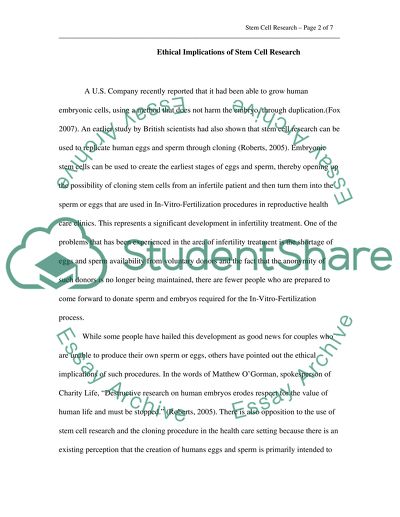Cite this document
(“Ethical Implications of Stem Cell Research Essay”, n.d.)
Ethical Implications of Stem Cell Research Essay. Retrieved from https://studentshare.org/health-sciences-medicine/1541822-stem-cell-research
Ethical Implications of Stem Cell Research Essay. Retrieved from https://studentshare.org/health-sciences-medicine/1541822-stem-cell-research
(Ethical Implications of Stem Cell Research Essay)
Ethical Implications of Stem Cell Research Essay. https://studentshare.org/health-sciences-medicine/1541822-stem-cell-research.
Ethical Implications of Stem Cell Research Essay. https://studentshare.org/health-sciences-medicine/1541822-stem-cell-research.
“Ethical Implications of Stem Cell Research Essay”, n.d. https://studentshare.org/health-sciences-medicine/1541822-stem-cell-research.


